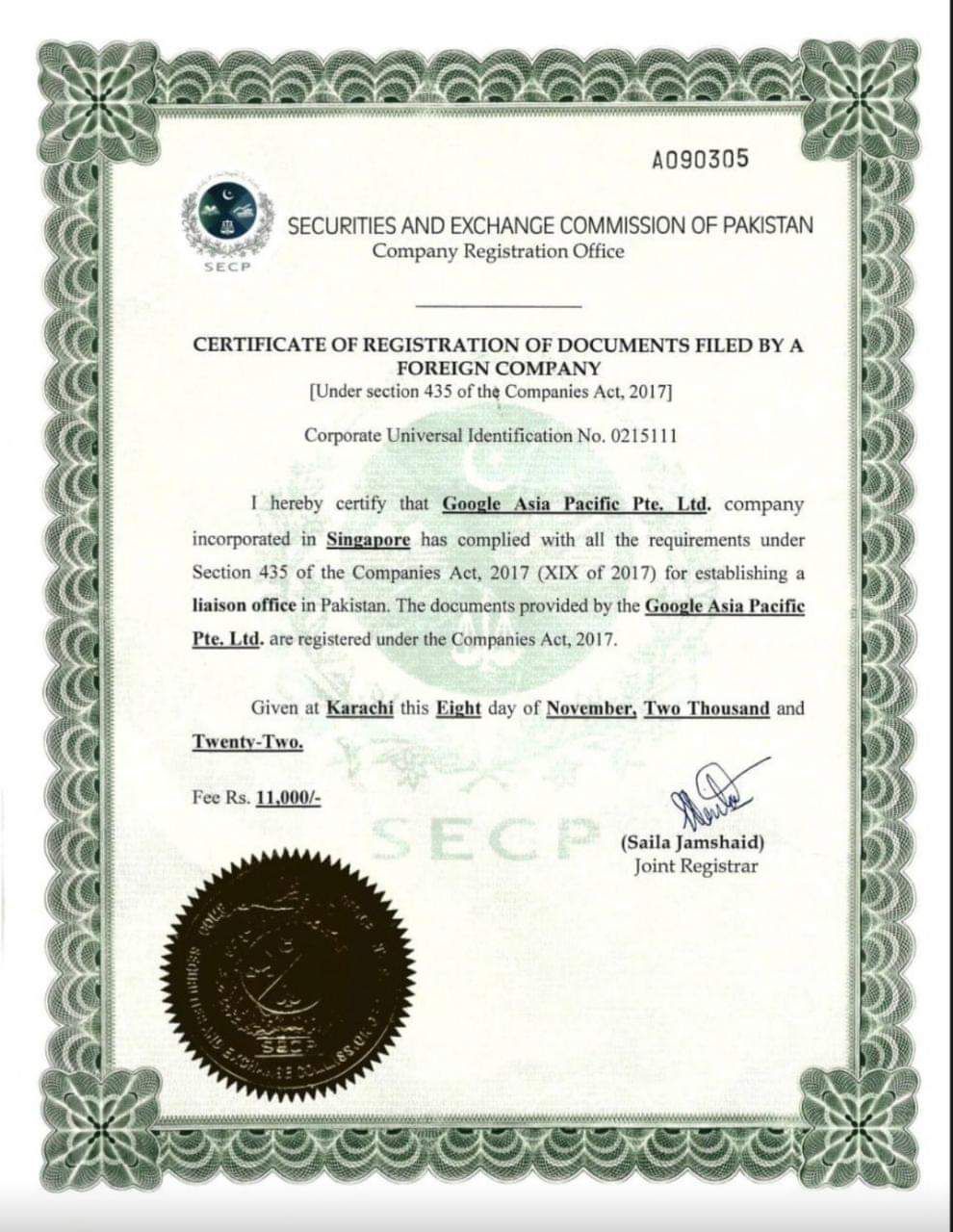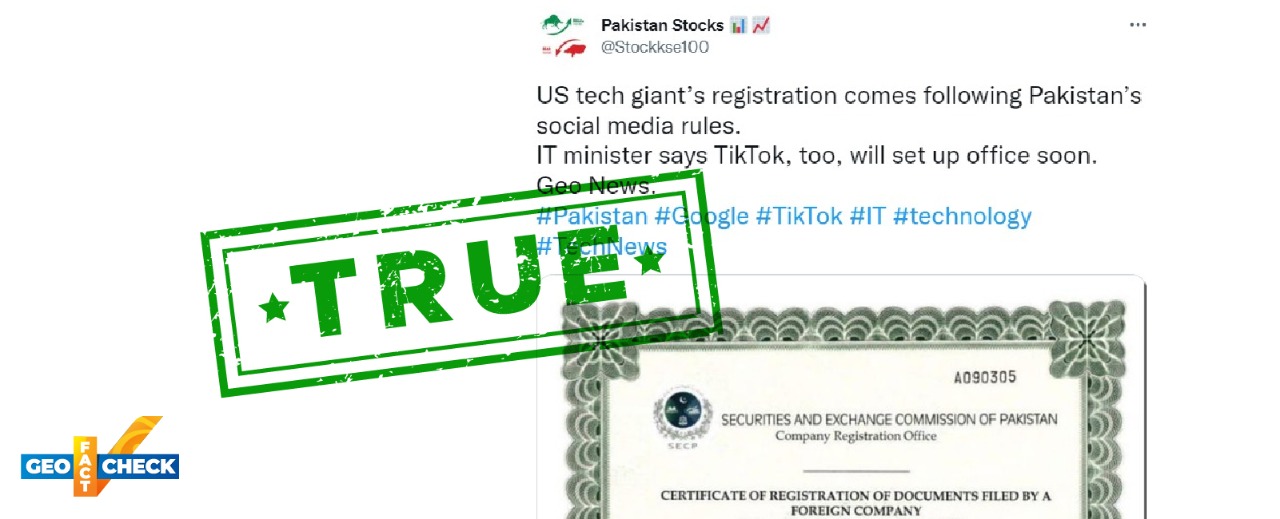Fact-check: Google has registered in Pakistan under controversial 2021 social media rules
IT minister confirms Google Asia Pacific registered with SECP under Removal and Blocking of Unlawful Online Content enacted in 2021 by PTI govt

Google has registered itself with the Securities and Exchange Commission of Pakistan (SECP).
After the news was reported in the media, multiple social media accounts wondered if the multinational company had registered under the social media rules, rolled out last year, which the Islamabad High Court had recently directed the government to revisit.
It is true, Google is being registered under the 2021 social media rules.
Claim
On December 9, a social media user wrote that Google will be registering “following Pakistan’s social media rules.”
While Nighat Dad, lawyer and digital rights activist, asked in a Twitter thread on what terms had Google agreed to open local offices while the rules are still contentious and the Islamabad High Court had directed that the rules be deliberated on in the parliament.
Fact
The Minister for Information Technology and Telecommunication Amin ul Haque confirmed to Geo Fact Check that Google Asia Pacific Ltd has registered with the SECP on November 8, under the Removal and Blocking of Unlawful Online Content (Procedure, Oversight, and Safeguards) Rules enacted in 2021 by the Pakistan Tehreek-e-Insaf (PTI) government.

“This is good news that Google has registered,” said the minister, over the phone, “We are hopeful that they will open an office in Pakistan too.”
The 2021 rules require social media companies, which have more than 500,000 users, to open an office in the federal capital as well.
But in May, the Islamabad High Court (IHC) referred the social media rules back to the parliament to review in order to ensure freedom of expression.
The minister said that as per the court’s order the ministry of law and justice has constituted a committee to take all stakeholders — national and international — on board before amending the rules.
“But the court did not prevent us from registering companies under [previous rules],” Haque added.
The minister further stated that Pakistani authorities are also in touch with TikTok and Facebook to open up offices in Islamabad.
Google in Pakistan: What does it mean for users?
For many digital rights activists, one concern is that under the rules once a social media company sets up locally they will be required to provide to Pakistan’s investigation agencies any user information and data in “decrypted, readable and comprehensible format”.
On this, the minister said that while they still have to sign an agreement with Google, they have “till now not [asked the company] for any [user] data to be shared.”
He further added that the government wished for all data to be safe.
“It [user data] should not be shared with anyone. If a social media company sets up an office in Pakistan then obviously their data would also be in Pakistan,” he said, “All those things that are against the state or religion or culture or custom on that we will definitely talk to them” for removal.
A Google spokesperson told Geo Fact Check via email that it has recently opened a liaison office in Pakistan “to explore business opportunities, better market our products and services locally and support the country’s fast growing tech ecosystem.”
Geo Fact Check also reached out to Farieha Aziz, the co-founder of Bolo Bhi, which advocates for digital rights in the country.
Aziz said the court’s directions were that the social media rules 2021 be reviewed by the parliament.
“However, no one has any knowledge of where this process is currently,” she told Geo Fact Check, “How and why has Google registered in compliance with controversial and under review rules? This is something Google should respond to.”
Aziz further added that for Google to register in Pakistan, in any capacity, “sets a bad precedent” especially when there is little clarity on the status of the rules.
“In the interest of transparency the terms of registration need to be very clear for users to make an informed decision about whether they still want to remain with the platform or opt for another's services in the interest of their privacy,” she explained.
Aziz also disagreed with the minister that user data will remain safe, adding that there is no data protection law at the moment in the country.
“All users should rightly be concerned about the safety of their data and privacy,” she said, “Unless the terms of registration and compliance are publicly known, the worst will be assumed.”
Update: Google responded to Geo Fact Check on December 23, after the publication of the article. Their response has been added to an updated version of the article.
Follow us on @GeoFactCheck. If our readers detect any errors, we encourage them to contact us at [email protected]




